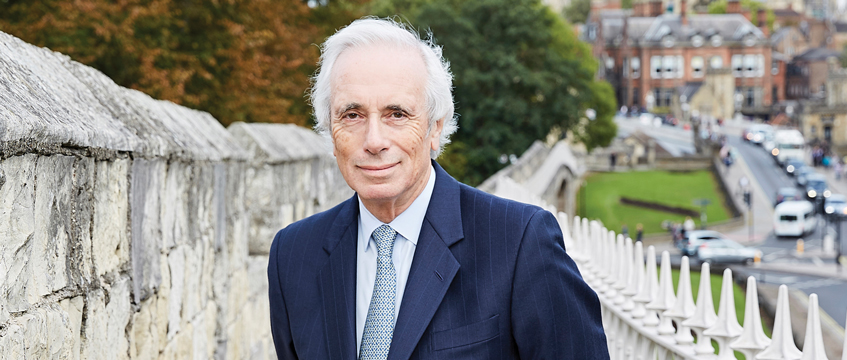10 key takeaways from a property pandemic veteran
COMMENT Coronavirus has had a profound effect on our lives already this year, but as the lockdown is lifted around the world, what will be the lasting impact?
Will we recall the first half of 2020 as a dramatic moment in history that interrupted a decade of growth, like the 11 September terrorist attacks in 2001?
Having suffered from the Asian flu as a teenager in 1957 with a temperature of 40.5°C, I can testify that this type of virus is debilitating, draining and life-threatening.
COMMENT Coronavirus has had a profound effect on our lives already this year, but as the lockdown is lifted around the world, what will be the lasting impact?
Will we recall the first half of 2020 as a dramatic moment in history that interrupted a decade of growth, like the 11 September terrorist attacks in 2001?
Having suffered from the Asian flu as a teenager in 1957 with a temperature of 40.5°C, I can testify that this type of virus is debilitating, draining and life-threatening.
But we have to remember that the UK – and the world – did not go into lockdown then, even though it killed 1m-4m people worldwide. The Dow Jones Industrial Average lost 15% of its value and the UK government paid out £10m in sickness benefit, with factories and mines having to close. The Asian flu did leave a scar.
In 2020 there will also be big changes, but we need to keep perspective over the impact of the pandemic. Not all the changes will necessarily be bad.
As one of the few people who has lived through the Asian flu and Covid-19 eras, here are my 10 key takeaways:
1. The government must act quickly to rebalance the relationship between landlords and tenants. It is plain wrong to take away landlords’ right to take action over non-payment of rent, with many well-capitalised tenants effectively choosing to go on strike.
2. Calling the end of the office is premature. Most people desire some separation between work and home, and enforcing home working would be at the expense of those in their 20s and working mothers who want work/life balance.
3. It will be important, though, for office landlords and tenants to come up with flexible leasing solutions. If the whole of corporate Britain has been caught out by this year’s pandemic, why should they have the confidence to sign up for a long lease in these uncertain times?
4. It is also clear that buildings will need far more connectivity. In the short term at least, face-to-face meetings may appear to be less important, and we can expect to be holding Zoom and Teams meetings even when we are back in the office – and reliable connections are key.
5. A desire to get back to the office, combined with fewer meetings, will mean regional offices come into their own. As experts, we would back this at Palace Capital – but why pay expensive rent, rates and salaries in London when Manchester or Leeds will do, particularly with their high graduate retention rates?
6. Car use will increase in the short term, with people in London most reluctant to use public transport. This again dictates in favour of the regions, where far more people drive to work. We still believe passionately, though, that regional public transport needs to improve, which we know is on the government’s agenda.
7. How people interact with buildings will change. More people will be using stairs, fewer will be using lifts, and for a time communal spaces may be out of bounds.
8. It’s also a slap in the face to landlords that the government isn’t giving empty rates relief – why should anyone be paying for services which can’t be used?
9. At the same time, it is bewildering that supermarkets are being given rates relief while rattling up record sales – leisure and retail tenants, yes, but supermarkets? And what about high street solicitors and accountants who are finding life challenging?
10. My final takeaway takes me back to my first point. EG cleverly pointed out in May that the majority of Britain’s retail property is owned by pension funds, insurance companies, local authorities and charities – in other words, the bulk of the UK population. I believe the same to be true of office buildings and industrial properties, yet the government sees fit to damage the very fundamentals of real estate as an investment for all our futures. This is definitely not in the public interest.
The quicker this injustice is fixed the better, for all our livelihoods in the decades to come. Having lived through three pandemics – we mustn’t forget the Hong Kong flu 1968-69, which also killed between 1m and 4m people – we must not let the cure be worse than the disease.
Neil Sinclair is chief executive of Palace Capital











